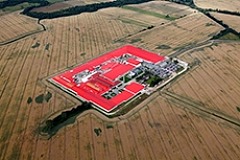In the world of finance, there's a common metric employed to showcase profitability: EBITDA. Short for earnings before interest, taxes, depreciation, and amortization, EBITDA is often used as the basis for determining the value of a business.
However, renowned investor Warren Buffet has expressed his disdain for this metric, arguing that it fails to capture the true value of a company. We believe he’s right and free cash flow is, in fact, a critical indicator of any company’s financial health.
Let’s examine why this is so.
Understanding EBITDA and Its Limitations
Before we delve into the shortcomings of EBITDA, let's first understand what it represents. EBITDA is a financial metric that reflects a company's earnings before accounting for interest expenses, taxes, depreciation, and amortization. It provides a snapshot of a company's profitability without considering certain expenses and financial obligations.
While EBITDA may seem like a useful metric for gauging the profitability of a business, it has one major detractor: It fails to account for the generation of cash. Warren Buffet, along with his business partner Charlie Munger, strongly believes that the real value of a business lies in the amount of cash it generates rather than its EBITDA figure.
To illustrate this point, let's consider an analogy shared by Buffet’s mergers and acquisitions professor, Izzy Stemp:
Imagine you are given a black box, and at the end of the year, you find nothing inside it. How much is that box worth? It may still hold some value due to its physical characteristics, perhaps around $20.
However, if you were to find $1 million inside the box every year, how much would it be worth then? The value of the box would increase significantly, and you might be willing to pay millions for it. This analogy demonstrates that the value of an asset depends on the amount of cash it generates.
The Importance of Cash Flow in Small Business Management
For small businesses, the focus should be on generating free cash flow rather than solely relying on EBITDA. Free cash flow represents the amount of cash a business generates after accounting for all expenses and investments. It provides a more accurate measure of a company's financial health, indicating its ability to:
- Cover expenses,
- Invest in growth, and
- Reward stakeholders.
Ignoring the concept of free cash flow can lead small businesses down a dangerous path.
Consider a scenario where a business has significant capital investments, such as machinery, inventory, or buildings. At the end of each year, the value of these assets depreciates, necessitating adjustments in earnings. While these adjustments may benefit the business from a tax perspective, they often require equivalent cash outflows for capital expenses.
Without properly accounting for these cash outflows, a business may appear profitable based on its EBITDA. However, it may be cashflow negative, unable to meet financial obligations and sustain its operations. This can result in a perpetual cycle of debt accumulation, hindered growth, and eventually, the demise of the business.
The Case of a Capital-Intensive Business
To further illustrate the importance of free cash flow, let's consider the example of a capital-intensive business. Imagine a small company operating a machine shop with substantial investments in machinery. This business incurs significant depreciation expenses each year to account for the eroding value of its assets.
While these depreciation expenses may reduce taxable income, they also represent cash outflows required to maintain and upgrade machinery.
Suppose this machine shop generates $10 million in EBITDA annually. On the surface, it may seem profitable. However, if the business also requires $15 million in investments and interest payments each year, its free cash flow would be negative, amounting to a loss of $5 million. Despite the apparent profitability indicated by EBITDA, the business is bleeding cash and struggling to sustain itself.
This example highlights the dangers of solely relying on EBITDA without considering the impact of necessary spending to replace depreciating assets and the burden of taxes.
For small businesses with limited financial resources, neglecting these crucial factors can lead to financial distress and ultimately, the collapse of the business.
Evaluating the Health of a Small Business
While EBITDA may still dominate discussions in investor prospectuses and valuation conversations, small business owners must not overlook the importance of free cash flow when managing their finances. To ensure the long-term viability and success of their businesses, they need to focus on generating positive free cash flow.
When evaluating the health of a small business, it's crucial to consider its ability to generate cash, cover expenses, and invest in growth. This requires a comprehensive understanding of the company's financial statements, including cash flow statements, balance sheets, and income statements.
Because there are a number of ways to calculate free cash flow, you'll want to consult an accountant as it can be somewhat complicated for the average owner. The main thing is to make sure you always see the free cash flow on all your financial reports.
Additionally, small business owners should develop strategies to improve free cash flow, such as:
- Optimizing operations,
- Reducing unnecessary expenses,
- Managing inventory efficiently, and
- Exploring financing options that align with the business's cash flow needs.
Be a Buffet EBITDA Skeptic
In the world of finance, EBITDA has long been a favored metric for showcasing the profitability of businesses. However, Warren Buffet's skepticism towards EBITDA highlights the importance of considering the generation of cash when assessing the value and financial health of a company.
For small businesses, free cash flow serves as a more accurate measure of financial viability. By focusing on generating positive free cash flow, small business owners can ensure the sustainability of their operations, meet financial obligations, and invest in growth opportunities.
So, if you're a small business owner, prioritize free cash flow over EBITDA when managing your finances. By doing so, you'll be better equipped to navigate the challenges of business ownership and secure the long-term success of your company.














